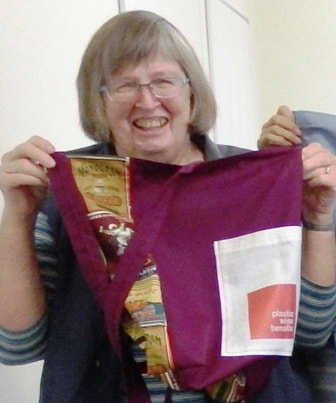The first part of the book is set in the western plains of New South Wales where Jill spent the first ten years of her life. Her home was Coorain – a local Aboriginal name meaning “Windy”.
Her parents moved there in 1930 after her father William Ker had built a house on a block of 18,000 acres. There was a severe drought and the onset of the Great Depresssion which made the start of such a venture extremely difficult. By dint of hard work and perseverance the family managed to build a successful sheep property. Jill was born there just as the family's fortunes improved. She with two older brothers then spent a few idyllic years in this isolated area.
In 1940 the elder boy was sent to boarding school in Sydney, 500 miles away. He tried to run away on several occasions so the parents sent the younger brother to the same school the following year.
Jill was now alone with her parents and, as World War 2 had led to a lack of station hands, she became her father's right hand “man”, spending most days riding with him and helping him with all the work required. She vividly describes the vast isolation but beautiful landscape. Her description of the dust storms are so vivid I felt as if I could taste the grit.
This early part of her life bears no resemblance to mine but after her father's death and the family moving to Sydney I could relate to many of her experiences. Her description of the school she attended sounded very similar to my experience, particularly when I became a boarder. There we wore hats, gloves and blazers and just reading her description brought back many memories.
Our attendance at University could not be compared as she was responsible for her mother who had become depressed and dependent on her children, particularly after the death of the older brother Robert in a car accident. My life at university was free of responsibility for anyone but myself.
On my first reading of this memoir I was captivated by the resilience and sense of duty displayed by Jill and had very little sympathy for her mother. However on this latest reading, I developed a respect for this woman as it seemed to me she was a victim of her gender. I can remember my own mother saying once how she envied me and my sisters-in-law as we all had our own careers.
How lucky am I that I was born into a family that valued education for all members regardless of gender. Also, although still victims of the gender pay gap, most women have the chance to have a career.
Marg McCrohan
April 2021


 RSS Feed
RSS Feed
